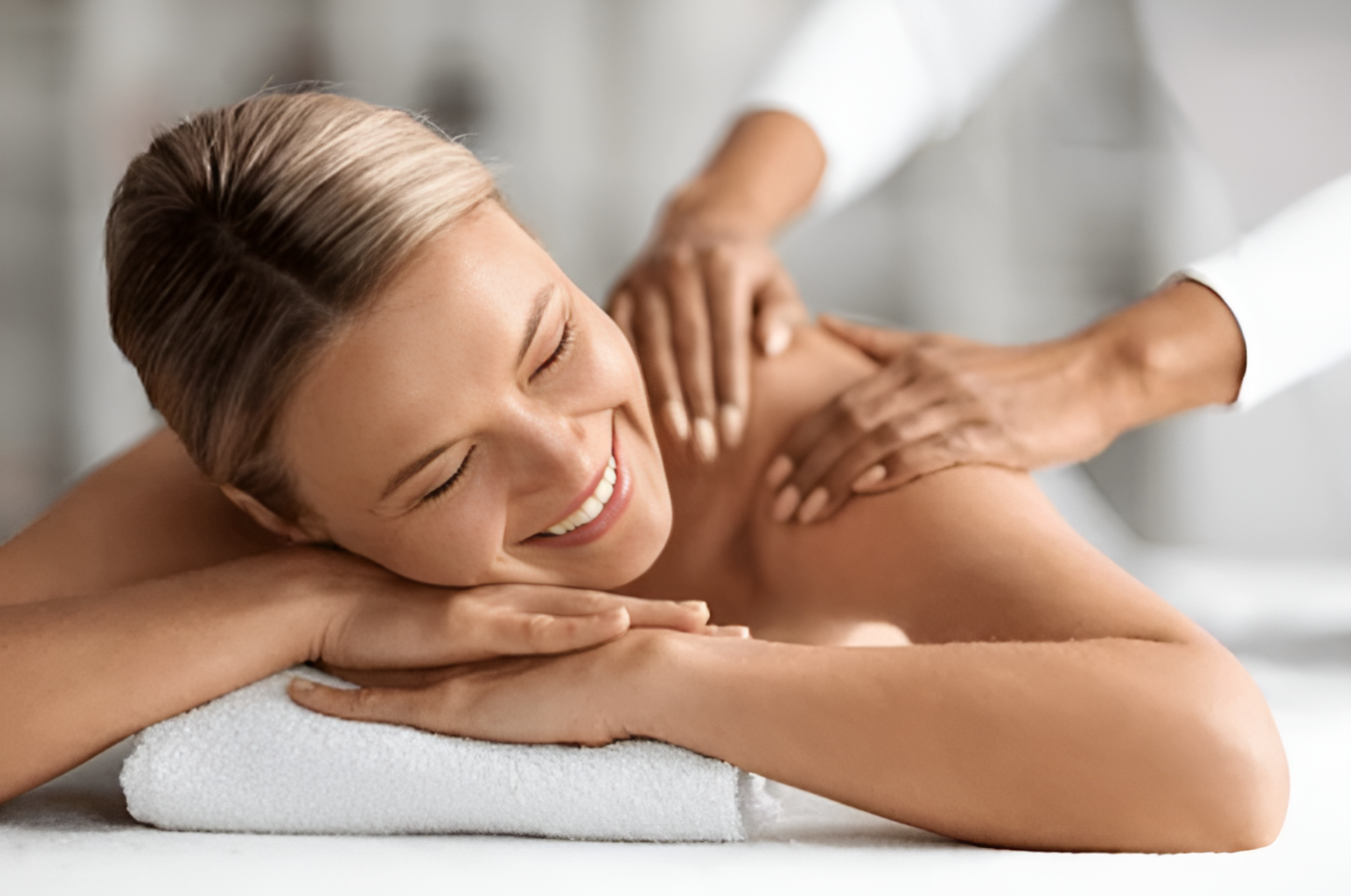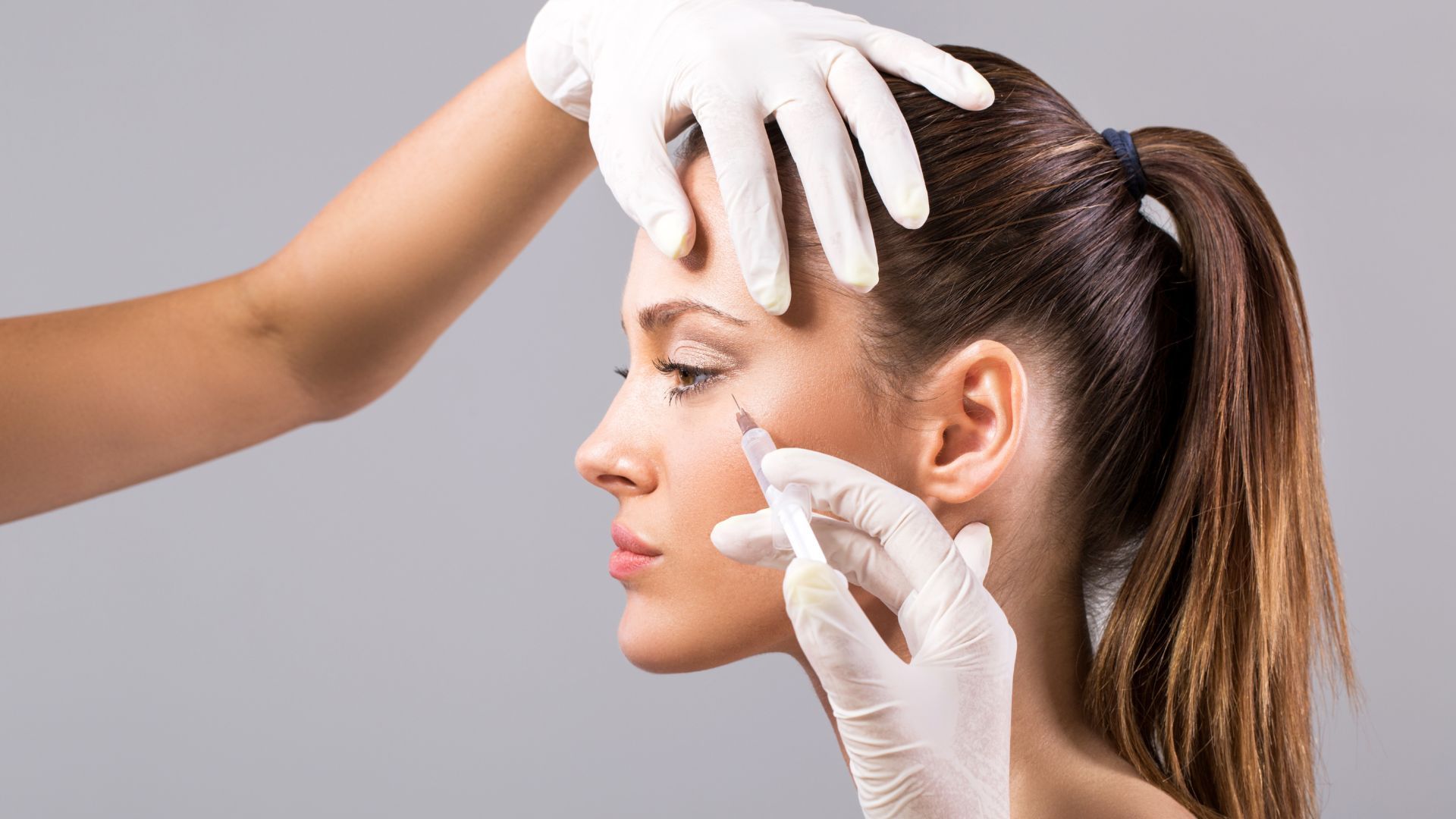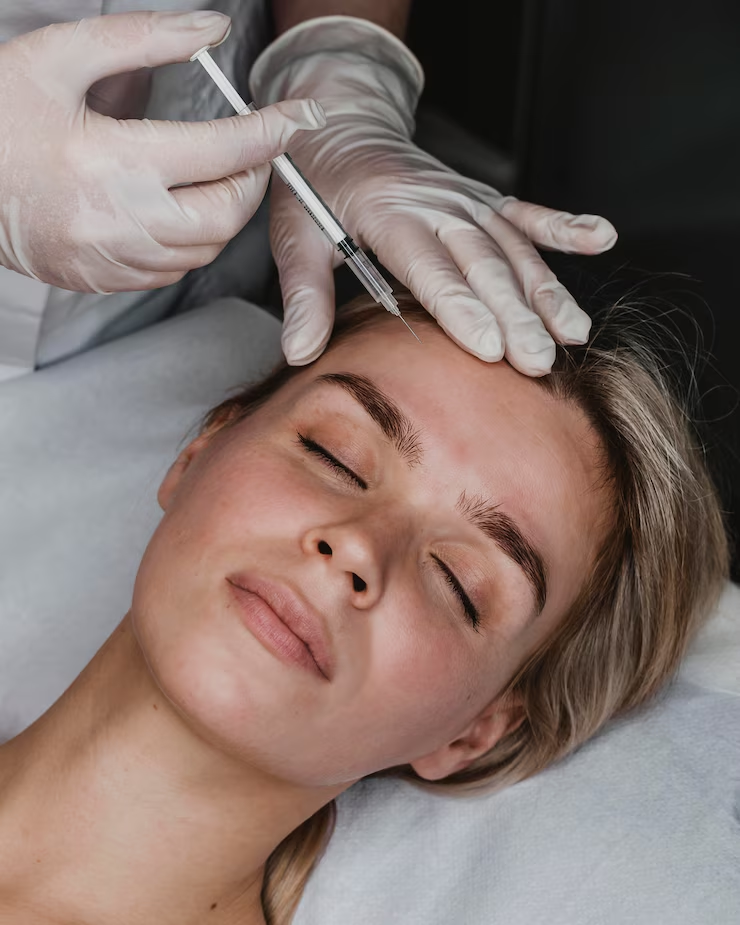The Healing Power of Massage Therapy: Benefits for Mind and Body
Massage therapy has long been revered as a holistic approach to enhancing overall well-being. This blog delves into the myriad benefits of massage, shining a light on its profound effects on both the mind and body. We will explore how regular sessions can alleviate physical tension, improve circulation, and promote relaxation, while also addressing mental health benefits such as reducing anxiety and stress levels.
Through expert insights and personal testimonials, we aim to illustrate how incorporating massage therapy into one's self-care routine can foster a deeper connection to oneself, leading to a more balanced and healthy lifestyle. Join us as we uncover the transformative power of touch and its ability to nurture both our physical and emotional health.
The Holistic Approach of Massage Therapy to Enhancing Well-Being
Understanding the Holistic Approach
The holistic approach of massage therapy is grounded in the principle that the body, mind, and spirit are interconnected. This perspective embraces the idea that physical ailments often have emotional and psychological components. Through targeted massage techniques, practitioners can address not only the physical symptoms but also the underlying emotional stressors that contribute to overall discomfort.

Benefits of a Holistic Massage Therapy Session
Alleviating Physical Pain
One of the foremost benefits of massage therapy is its ability to relieve physical pain. Techniques such as deep tissue massage can penetrate tense muscles, helping to release tightness and alleviating conditions like chronic back pain, migraines, and joint discomfort.
Enhancing Emotional Health
The emotional benefits of massage are equally significant. Regular sessions can foster a sense of security and calm, which plays a crucial role in reducing symptoms of anxiety and depression. The soothing touch during a massage can stimulate the release of oxytocin, promoting feelings of relaxation and emotional well-being.
Balancing Energy Flow
Ayurvedic and traditional Chinese medicine principles highlight the importance of energy flow within the body. Massage therapy contributes to the unblocking of energy pathways, facilitating the movement of 'Qi' or 'Prana,' which can enhance overall vitality and contribute to a balanced state.
Incorporating Massage into Self-Care Routines
To fully experience the holistic benefits of massage therapy, it is essential to incorporate it into an ongoing self-care routine. Regular sessions not only provide therapeutic benefits but also serve as an opportunity for individuals to reconnect with their bodies, promoting mindfulness and enhancing self-awareness.
How Massage Therapy Alleviates Physical Tension and Pain
Release of Muscle Tension
Massage therapy employs various techniques that specifically target tense muscles, facilitating relaxation and release. Techniques such as kneading, stroking, and tapping help to manipulate the muscles, breaking down tension and promoting improved flexibility. As the practitioner applies pressure to specific areas, the resulting relief from tightness can lead to a significant decrease in discomfort and a restoration of movement range.
Improved Circulation
The mechanical action of massage not only eases muscle tension but also stimulates blood circulation. Enhanced blood flow delivers more oxygen and nutrients to the muscles while aiding in the removal of metabolic waste products. This process accelerates recovery from injuries and reduces muscle fatigue, ultimately contributing to a feeling of rejuvenation throughout the body.
Reduction of Inflammation
Many forms of massage, particularly deep tissue and sports massage, can help reduce inflammation in the muscles and joints. By increasing circulation and stimulating the lymphatic system, massage encourages the reduction of swelling and promotes faster healing. This can be particularly beneficial for individuals recovering from strains or injuries, providing a pathway to improved mobility.
Stress Relief
Physical tension is often exacerbated by stress, creating a cycle that affects overall well-being. Massage therapy helps break this cycle by promoting relaxation and inducing a state of calm. The release of endorphins during a massage not only alleviates pain but also diminishes stress levels, contributing to an enhanced sense of comfort and pain relief.
Tailored Techniques for Individual Needs
Massage practitioners assess individual needs to determine the most effective techniques for alleviating physical tension and pain. Customized treatments may incorporate a combination of Swedish, deep tissue, or trigger point therapy, ensuring that the session addresses specific issues. This tailor-made approach enhances the overall efficacy of the therapy, promoting lasting relief.
The Role of Massage in Improving Circulation and Promoting Relaxation
Enhancing Blood Flow
Massage therapy plays a pivotal role in enhancing blood circulation throughout the body. By applying pressure to specific muscle groups and tissues, massage stimulates the vascular system, leading to improved blood flow. This process ensures that vital nutrients and oxygen are efficiently delivered to various organs, promoting overall health and vitality.
Techniques that Aid Circulation
Different massage techniques, such as effleurage (long, sweeping strokes) and petrissage (kneading movements), are particularly effective in promoting circulation. These techniques not only encourage blood flow but also stimulate the lymphatic system, which is essential for removing toxins and waste products from the body. Regular sessions can result in long-term improvements in circulation, benefiting those who suffer from conditions like varicose veins or other circulatory issues.
Inducing Deep Relaxation
In addition to improving circulation, massage therapy is renowned for its ability to induce deep relaxation. The gentle manipulation of muscles not only eases tension but also activates the body's relaxation response, which lowers heart rate and reduces cortisol levels. Consequently, regular massage can lead to reduced anxiety, improved sleep quality, and an enhanced sense of well-being.

The Mind-Body Connection
Massage serves to strengthen the mind-body connection, allowing individuals to become more attuned to their physical and emotional states. This heightened awareness fosters a sense of calm and helps in managing stress more effectively. As tension and stress are released through massage, many report feeling an uplifting mental state that complements the physical benefits, leading to a holistic sense of relaxation and rejuvenation.
Long-Term Effects on Health
Ultimately, the integration of massage into a wellness routine can have lasting effects on both circulation and relaxation. Whether it’s a weekly indulgence or a part of preventive care, the cumulative benefits of massage therapy enhance overall health, making it a valuable tool for achieving a balanced lifestyle.
How Regular Massage Sessions Contribute to Overall Physical Health
Prevention of Injuries
Regular massage sessions are instrumental in preventing injuries, especially for active individuals and athletes. By regularly addressing muscle tightness and imbalances, massage helps maintain proper muscle function and flexibility. This proactive approach can minimize the risk of strains, sprains, and other common injuries that result from overuse or incorrect movement patterns.
Enhanced Recovery
For those recovering from physical exertion, massage therapy accelerates the healing process. The increased circulation promotes faster delivery of nutrients and oxygen to damaged tissues, while also aiding in the removal of lactic acid and other waste products. This heightened recovery aids in returning to peak performance more quickly, making it especially beneficial for athletes or individuals engaging in strenuous activities.
Improved Posture
Regular massage can contribute significantly to better posture. Tension in the muscles, particularly in the shoulders, neck, and back, can lead to misalignment and discomfort. By relieving this tension, massage helps align the body correctly, promoting natural posture. Improved posture not only alleviates discomfort but also enhances overall physical appearance and confidence.
Boosted Immune Function
Research suggests that regular massage therapy may aid in boosting the immune system. The relaxation response induced during a massage can decrease stress hormones, which, when elevated, can suppress immune function. By lowering stress and enhancing circulation, massage supports the body's ability to fend off illnesses and infections.
Greater Mindfulness and Body Awareness
Engaging in regular massage sessions fosters a deeper connection to one’s body. This heightened awareness encourages individuals to be more mindful of their physical and emotional states, leading to better self-care practices. As clients become more attuned to their bodies, they are likely to notice issues earlier, allowing for timely interventions and healthier decision-making.
The Mental Health Benefits of Massage in Reducing Anxiety and Stress
Alleviation of Stress Symptoms
Massage therapy is well-known for its effectiveness in alleviating symptoms of stress. The combination of physical touch and relaxation techniques helps to lower levels of cortisol, the body's primary stress hormone. As cortisol levels decrease, individuals often experience a reprieve from the physical manifestations of stress, such as muscle tension, headaches, and digestive issues.
Enhanced Mood and Emotional Well-Being
The release of endorphins and other neurotransmitters during a massage session can lead to an uplifted mood. Increased levels of serotonin and dopamine help promote feelings of happiness and relaxation, combating anxiety and depression. Regular massage can create emotional resilience, equipping individuals with a stronger overall sense of well-being in the face of life’s challenges.
Creation of a Safe Space for Self-Reflection
Massage therapy often provides a unique environment that encourages self-reflection. In the tranquility of a massage room, individuals can disconnect from the busyness of daily life, allowing them to tune into their thoughts and feelings. This reflective space can be crucial for processing emotions and fostering mental clarity, ultimately aiding in stress reduction.
Improved Sleep Quality
Stress and anxiety frequently interfere with sleep quality; however, massage therapy can play a significant role in combating this issue. The deep relaxation achieved during a massage promotes better sleep by lowering muscle tension and anxiety levels. Improved sleep quality not only enhances overall mood but also leads to better focus and productivity during waking hours.
Building Coping Mechanisms
Incorporating regular massage into a personal wellness routine can assist individuals in developing effective coping mechanisms for dealing with anxiety and stress. The mindfulness cultivated during sessions promotes greater awareness of personal triggers and stressors, allowing for more proactive and constructive responses to stressors in daily life.

How Massage Therapy Supports Emotional Balance and Well-Being
Regulation of Emotions
Massage therapy can play a vital role in regulating emotions by providing a calming influence on the mind and body. The physical touch involved in massage triggers the release of oxytocin, often referred to as the "love hormone," which helps to foster feelings of connection and emotional warmth. This physiological response contributes to a more balanced emotional state, enabling individuals to navigate their feelings with greater ease.
Stress Reduction and Resilience
Incorporating massage therapy into a wellness routine consistently helps manage and reduce stress levels. The relaxing experience can cultivate resilience, allowing individuals to face daily challenges more effectively. By learning to recognize stress triggers during sessions, clients can develop strategies to cope with pressure and anxiety, resulting in improved emotional well-being.
Reflection and Self-Discovery
The tranquil atmosphere of a massage therapy session encourages introspection, allowing individuals to connect with their emotions on a deeper level. This environment provides a space for self-discovery, where clients can process thoughts and feelings in a safe setting. This reflective practice can lead to greater clarity about personal needs and goals, further supporting emotional balance.
Strengthening Mind-Body Connection
Massage therapy enhances the mind-body connection, fostering increased body awareness. This awareness allows individuals to tune into their emotional states and recognize patterns in their physical and emotional responses. Improved connection encourages a more holistic approach to self-care, empowering individuals to make choices that nurture both their mental and emotional health.
Promotion of Overall Well-Being
Ultimately, regular massage therapy contributes significantly to emotional balance and overall well-being. By addressing both the physical and emotional aspects of health, clients often experience more profound feelings of contentment and fulfillment. This comprehensive approach makes massage therapy an essential component of a balanced lifestyle, supporting emotional health alongside physical wellness.
The Transformative Power of Touch in Nurturing Mind and Body
The Science of Touch
Touch is a fundamental human experience that significantly impacts emotional and physical well-being. Studies have shown that physical contact stimulates the release of various hormones, including oxytocin and endorphins, which are vital for emotional connection and stress relief. These biochemical responses not only foster a sense of security and comfort but also enhance overall mood, making the act of touch a powerful tool for nurturing the body and mind.
Emotional Healing Through Touch
The power of touch extends beyond mere physical relief; it holds the potential for profound emotional healing. Therapeutic touch, as experienced in massage therapy, facilitates the release of pent-up emotions, providing a safe outlet for individuals to confront and process their feelings. This healing process paves the way for emotional release, allowing individuals to better understand their emotional traumas and ultimately move towards a state of acceptance and recovery.
Building Connections and Relationships
Touch plays a crucial role in forming and strengthening interpersonal connections. Whether through a gentle massage, a supportive hug, or a simple pat on the back, physical touch fosters feelings of trust and intimacy. The ability to connect with others on a physical level nurtures relationships, enhances communication, and promotes a sense of belonging, all of which are vital components of mental well-being.
Promoting Relaxation and Calm
In our fast-paced world, finding moments of relaxation can be challenging. Touch, particularly through massage, provides an immediate means of calming the nervous system and reducing stress levels. The soothing sensations associated with massage therapy can decrease feelings of anxiety, promote tranquility, and subsequently lead to a deeper sense of inner peace. Regular sessions can cultivate a greater sense of calm, allowing individuals to navigate daily challenges with more ease and grace.
Fostering Self-Compassion
In addition to the benefits of touch from external sources, cultivating a practice of self-touch can significantly enhance self-compassion. Techniques such as gentle self-massage or mindful touch can encourage a nurturing attitude towards oneself. This practice not only reinforces self-love and acceptance but also promotes an improved connection with one’s own body, enabling individuals to listen to and respect their physical and emotional needs more effectively.
Connect with Bel Viso Medical Spa
Are you ready to enhance your natural beauty and embrace a more confident you? At Bel Viso Medical Spa , the focus is solely on you. We pride ourselves on fostering a collaborative treatment plan between our experienced providers and clients, ensuring that each step taken is tailored to achieve your desired aesthetic outcomes. Don’t wait to start your journey towards self-discovery and beauty enhancement. Contact us today to schedule your consultation and experience the transformative power of personalized care!
Our Recent News & Articles





